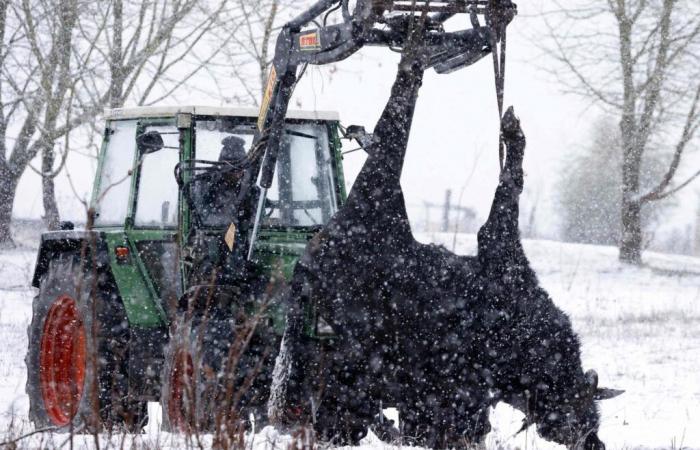The United Kingdom announced on Tuesday January 14 a ban on imports of cattle, pigs and sheep from Germany, after cases of foot-and-mouth disease were detected in this country.
“UK health certificates will no longer be issued for animals at risk of exposure to foot and mouth disease, which includes live animals and fresh meat”explained the British Department for Environment, Food and Rural Affairs. The measure is intended to “protect farmers”underlines the ministry.
In 2001, up to 10 million animals were slaughtered in the UK during a foot-and-mouth disease outbreak which cost the British economy around £8 billion (€9.5 billion). No case of foot-and-mouth disease has, for the moment, been recorded in the United Kingdom, assures the ministry, which however calls on breeders to “stay vigilant for clinical signs” of the disease.
In a note, he also specifies that there was no “no import” from Germany of live animals likely to have been exposed to foot-and-mouth disease since December 12, the date corresponding to the start of two successive incubation periods for the disease.
Products of animal origin “considered to be at risk”
Furthermore, animal seeds, products of animal origin and animal by-products from species likely to have been exposed are “considered to be at risk” for the transmission of foot-and-mouth disease. All those imported since December 12 “are subject to tracking”.
The government does not specify the volume of imports of livestock products from Germany but, in 2023, the United Kingdom produced on its territory 85% of the beef it consumed as well as 64% of pigs.
In France, the Ministry of Agriculture told Agence France-Presse that it was “on alert” and strengthen “drastically controls and surveys of the animal sectors concerned”. He added follow “closely to the evolution of the situation in Germany”.
Three cases of this disease, which is highly contagious for animals but harmless for humans, were detected on Friday in water buffaloes near Berlin, a first in the European Union since 2011, and in Germany since 1988.
The contaminated animals died and the 11 other animals in the herd were preventively slaughtered, according to the German authorities, who have limited the transport of farmed animals to stop the contagion.
Germany can still sell meat produced outside risk areas to its European neighbors, but for other countries it all depends on the trade agreement in place. South Korea has suspended its imports of German pork as a precaution, according to Berlin.
Read also | Article reserved for our subscribers First outbreak in France of a new type of bluetongue in the North
Read later






